People
Our team consists of an ambitious board, people determined to put visions into practice, and the best experts in the field of school education. Meet our Board », our Team », our Advisory Board » and our Expert Consultants ».
Board
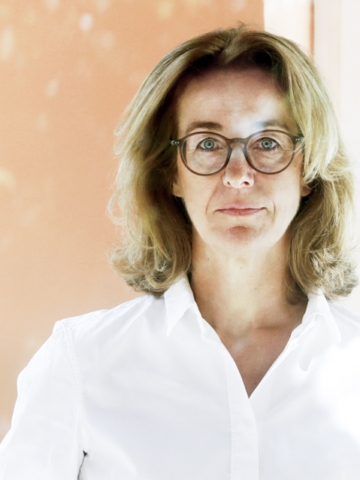
Henrike Reemtsma (Chair of the Board)
Initiator
As a girl, Henrike Reemtsma attended boarding school herself. She is a committed European and passionate preservationist of historical monuments. It was she who had the initial idea that triggered the Templin school project.
What excites you about this project?
“The est brings together three themes that I am very excited about. One is boarding schools as a holistic school type that shapes every facet of an individual’s life. Another is the preservation of historical monuments and new construction. The third is the European idea, which stands for freedom, diversity, the beauty of our various cultures, and our shared roots. I see great opportunities in bringing these three themes together within a single organisation and creating something sustainable.”
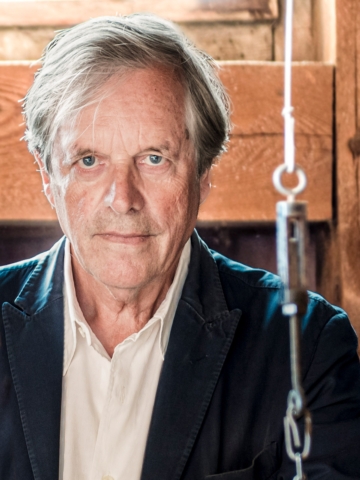
Dr Arnulf Conradi
A vibrant Europe
Arnulf Conradi studied literature at Free University Berlin, where he earned his doctorate with a thesis on the American novel. He worked as an editor and publishing director at claassen in Düsseldorf before switching to Fischer in 1983. Then, in 1993, he founded Berlin Verlag publishing house, which he led until he left the company in 2004. He subsequently held various positions at the American Academy in Berlin and as a cultural advisor to Chancellor Gerhard Schröder. Conradi is the author of several books.
What excites you about this project?
“I am keen to educate generations of young Europeans who carry our unique European culture in their hearts and who are well informed about the continent’s varied history. When young people leave our school describing themselves as Europeans, then I will know that we have created something powerful.”
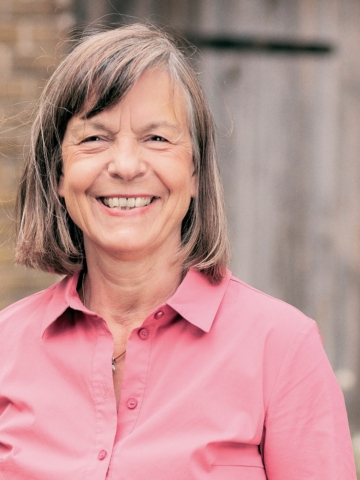
Gabriele Förder-Hoff
The Whole of Europe in Templin
Gabriele Förder-Hoff (M.A.) studied history and German language and literature. From 1991 to 2018 she worked in various positions in the Ministry for Education, Research, and Culture of the State of Brandenburg, focusing on public finances and sustainable budgeting. Today she heads a family business in Templin. Gabriele Förder-Hoff has worked and published as a historian on the history of Protestant associations and foundations and on the history of science and organisations. Gabriele Förder-Hoff has three grown-up children and lives near Templin.
What excites you about this project?
“A European school in Templin – what a magnificent idea, what a great enrichment for our region! Being open for people from other nations, democracy and solidarity in Europe must begin on a small scale and at an early age. An enthusiasm for learning, curiosity and interest, respect and tolerance are all virtues that will be top priority at the est. We need young people who have internalised these values in order to shape democratic and peaceful togetherness for future generations in Europe, in Germany, and also in our region.”
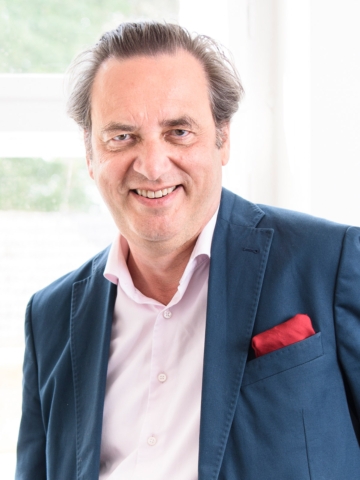
Cord Heinichen
Legal Expertise
Cord Henrich Heinichen studied law, and also gained an MBA from the University of Wales. He specialises in administrative law, with his own practice in Berlin. Cord Henrich Heinichen is married, has two grown-up children, and lives in Berlin.
What excites you about this project?
“My own school days showed me clearly that things could be done much better. European, diverse, tolerant. Respecting the cultures of others. And this on a site like that of the Joachimsthalsches Gymnasium Templin, which stands for value-based education. Learning, diversity, culture, the preservation of historical monuments – this is Europe!”
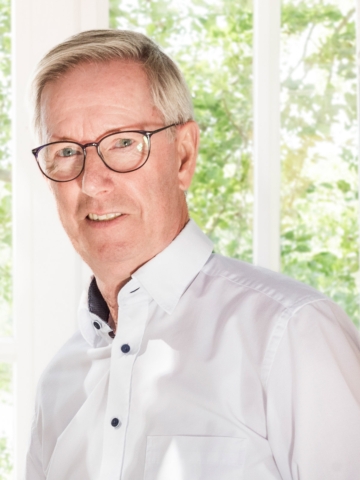
Uwe Schmidt (Deputy Chair Person)
Where numbers tell stories
After school, Uwe Schmidt gained a qualification as a wholesaler before embarking on a career in the public banking sector. Until 2012 he was chairman of savings banks Kreissparkasse Prenzlau and Sparkasse Uckermark. From 2014 to 2019 he was a Social Democratic Party member of the Brandenburg Landtag. He was involved with the charitable foundation Stiftung Gebäudeensemble Joachimsthalsches Gymnasium Templin both during his work at the Sparkasse Uckermark and later as a member of the Landtag.
What excites you about this project?
“What motivates me is the idea of educating young people from Germany and neighbouring countries right here in Templin and winning them over to the European idea. Apart from that, the project will be of great significance to Templin, the Uckermark region, and beyond.”
Office Team in Berlin and Templin
Full speed ahead
The project office staff of the foundation Stiftung Gebäudeensemble Joachimsthalsches Gymnasium Templin introduce themselves.
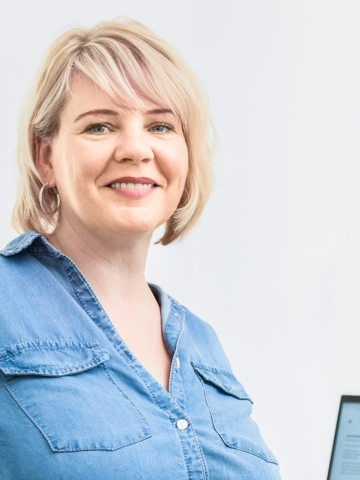
Grit Bartelt (Office Management)
bartelt@est.eu
Grit Bartelt graduated from the Business Academy in Kiel as a state-examined business administrator, and since then has continued to learn and gain new qualifications. She has many years of experience in the establishment and leadership of administrative organisations. She has in-depth expertise in office work, digital administration, human resources and organisational development.
What excites you about this project?
“Templin is my home town. A new school is being created here, where young people from all over Europe can come together. The new education campus in Templin will be a boost to the region and strengthen the unity of Europe.”
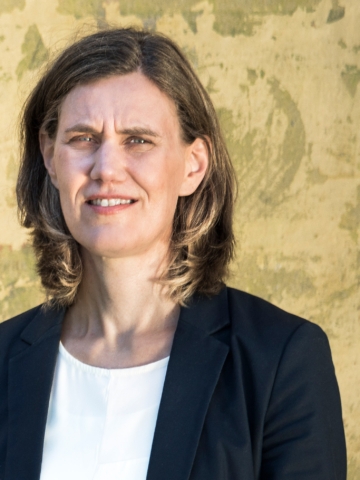
Kerstin Ischen (Networking and Communication)
ischen@est.eu
Kerstin Ischen has 20 years’ professional experience in communication and fundraising, including with major donors. Before she joined our foundation she worked as communications manager at Active Philanthropy and Wider Sense. Before that she organised public relations and fundraising for the Humboldt Forum Foundation in the Berlin Palace.
She started her career at the Bertelsmann Foundation and with publishers Random House and Editorial Anagrama in Barcelona, before becoming development and outreach manager at Human Rights Watch in Berlin.
Ischen studied modern foreign languages at Giessen University, Complutense University of Madrid and the University of Wisconsin-Milwaukee. She combined English, business administration and Hispanic studies, graduating with a degree in business English.
What excites you about this project?
“It is important to me personally to champion socially relevant themes within my work. I have long been concerned with the topics of lifelong learning, educational innovation, and the European idea. The campus at Templin is the ideal place to explore possible solutions to societal challenges.”
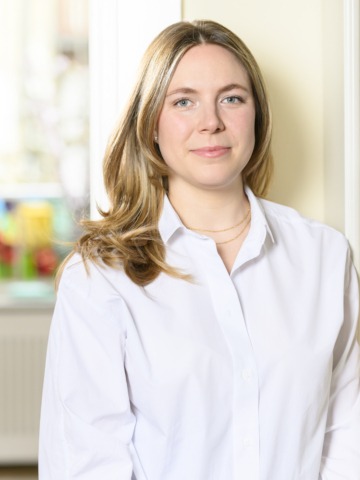
Stine Peisl (Managing Director)
Before joining the foundation, Peisl gained professional experience in the areas of tax law, civil law, project management and communications at firms such as KPMG, Goldfish Ventures and WilmerHale.
Stine Peisl studied law and history at Heidelberg University, Humboldt University Berlin and the University of Göttingen, graduating with a double bachelor’s degree.
What excites you about this project?
“The est will strengthen European cohesion, boost the local region, and enable innovative, forward-looking education for all. It is a joy for me to be able to work every day towards the realisation of this project.”
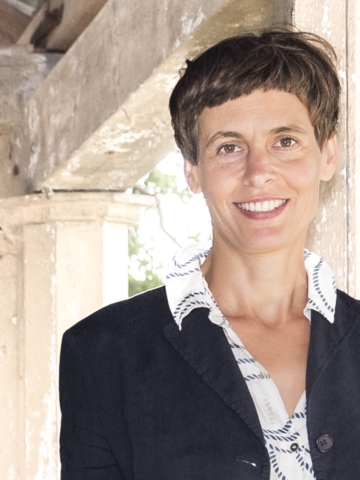
Daniela Obkircher (Events, Summer Camp & Association of Friends)
Daniela Obkircher’s career so far has taken her to the Academy of Arts in Berlin, where she worked for the international scholarship programme, to the Haus am Lützowplatz art association, and to the Cultural Foundation of the German Federal States, where she organised several “Kinder zum Olymp!” (Children to Olympia) educational events.
Obkircher studied art history, Italian and media studies at Humboldt University Berlin, Technical University Berlin and the Università di Bologna.
What excites you about this project?
“It’s a wonderful thought that this impressive historical ensemble of buildings is going to be brought back to life by becoming a school for young people from different countries who want to shape their future as committed Europeans.”
Yashi Freitag (Communications Assistant)
Our Historical Buildings Maintenance Team
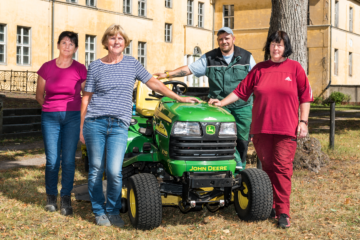
Roswitha Krämer
Cordula Lick
Danilo Reinhardt, caretaker
Margit Kassube
Bernhardt Haertel, head of the Green Team (not in the photograph)
Fred Malz (not in the photograph)
Christopher Rütz (not in the photograph)
Out team maintains the buildings and grounds.
Advisory Board
Achieving more together
Our honorary advisory board members have comprehensive international experience in (private) school education, boarding schools, educational sciences, or with large construction projects. They support our team in daily operations, and are at hand with their own expertise in education and architecture, and to provide further contacts. They offer feedback and ideas on the concepts drafted by our expert consultants.
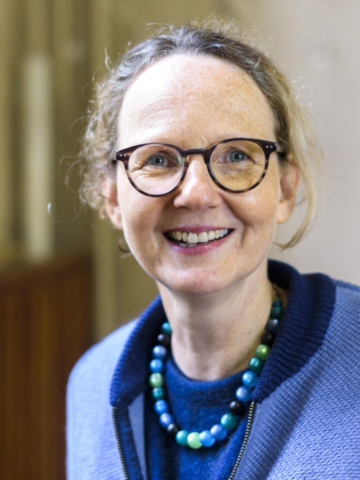
Prof. Dr. phil. Anne Sliwka
Professor of educational sciences, University of Heidelberg
Prof. Dr. Anne Sliwka is professor of educational sciences at the University of Heidelberg, and she researches and teaches on the development of schools with international comparisons, and on deeper learning. She has visited schools all over the world, finding outstanding examples of best practice particularly in Australia, Estonia, Canada, New Zealand, and Singapore. Among her many activities is her work on the academic advisory board to the Ministry of Culture and Education in Baden-Württemberg, the academic advisory board to Teach First, and the “Neue Oberstufe” (New Upper School) project at the German Schools Academy.
https://www.ibw.uni-heidelberg.de
What excites you about this project?
“In this school, students from all the countries of Europe will learn and live together. In project-based learning, they will shape their own future together. They will explore the cultural and linguistic diversity of our continent and its strong basis in values, and they will experience the foundations of Europe: human rights, democracy, and solidarity. Between the large powers Russia, China and the USA, Europe must find its own future and confidently assert itself. This school offers something really needed: a place where young people can together learn to think and act as Europeans – it is a European union on a small-scale.”
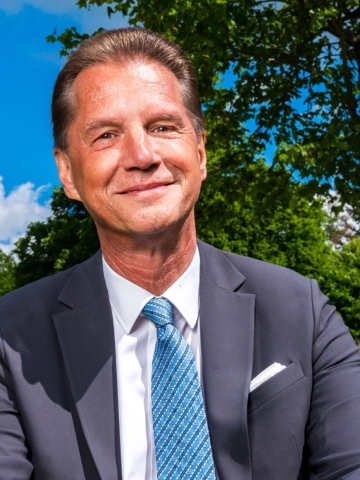
Jörg Müller
Principal at the Hermann-Lietz-Schule Hohenwehrda
Jörg Müller can look back at more than 30 years of international experience in boarding schools. After a first post as the head of a Catholic boy’s boarding school in East Sussex, United Kingdom, he became chairman of the foundation board at Schloss Neubeuern. He transformed this boarding grammar school into one of Germany’s leading boarding schools, in particular as an outstanding digital school – the first grammar school in Germany to conduct the Abitur (upper school qualifications) in digital form. Müller has also spent five years as a freelance education and business consultant. Since 2021 he has been the principal of the school and boarding school at Schloss Hohenwehrda.
https://www.lietz-schulen.de/schloss-hohenwehrda/-ber-uns/tr-ger-und-gremien
What excites you about this project?
“A boarding school is not just a school for learning, but for living. On the one hand you need to see the individual needs of children and young people and let them have space to find themselves. At the same time they also need to learn to be part of a community and to be sensitive about each other’s needs. This means learning that the well-being of the community has priority over that of the individual. I am really enthusiastic about applying this concept to a school for students from the whole of Europe in order to strengthen the European community.”
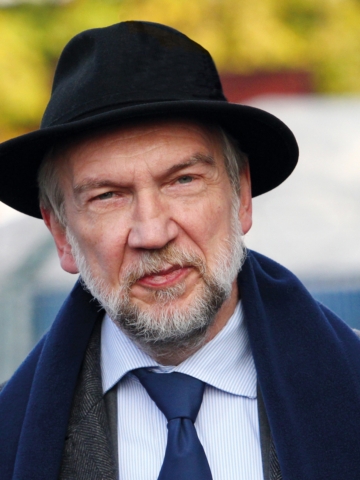
Andreas Wegener
Board member Stiftung Private Kant-Schulen foundation; chairman of the board of the Berlin-Brandenburg Association of German Private Schools (VDP Berlin/Brandenburg e. V.)
Andreas Wegener studied education and has been working for more than 25 years for the Stiftung Private Kant-Schulen foundation. From 1999 bis 2020 he was managing director of this schools provider with several schools in the southwest of Berlin, and with around 2,600 children in kindergartens and pupils and students in schools from the first grade to Abitur or the International Baccalaureate. His tenure was marked by a number of school renovation and reconstruction projects. Andreas Wegener works and campaigns for independent schools in the Association of German Private Schools Associations e.V. (VDP), for many years in his capacity as chairman of the board of the Berlin/Brandenburg Association, and also as the spokesperson of the Working Group of Independent Schools (AGFS Berlin).
www.VdP-Berlin/Brandenburg/unser-Landesvorstand
What excites you about this project?
“The public school system needs future-looking private schools run by charitable organisations – such as the future est. This form of enrichment and quality-based competition for the excellent and relevant provision of education for everyone benefits all school students.”
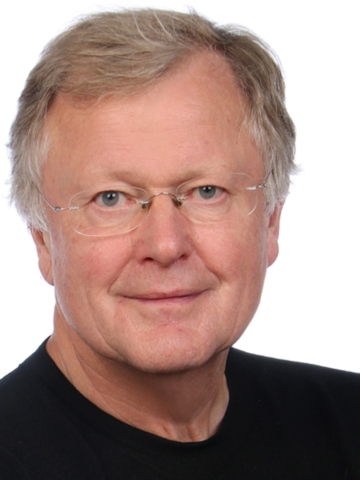
Manfred Rettig
Architect, diploma engineer, former ministerial director, head of the task force for the transfer of the German federal government to Berlin.
Manfred Rettig, architect and engineer, was a founder board member and the spokesman of the Humboldt Forum in the Berlin Palace foundation from 2009 to 2016. Before that he headed the task force for the buildings affected by the transfer of the German federal government to Berlin, completing this project within the dedicated costs and timeline. From 2001 he was managing director and spokesman of the Bundesbaugesellschaft Berlin mbH, which is responsible for the construction of national government buildings.
Manfred Rettig holds numerous honorary positions. He is the chair of the Friends of the Ethnological Museum in the Humboldt Forum and of the Association of Friends of Villa Vigoni at Lake Como.
Manfred Rettig on the “future role of Europe in the world” in Vigoni Paper no. 4/2020 » (pdf)
What excites you about this project?
“Europe needs visions! Visions lead to hopes and perspectives – and these are particularly needed in critical times. The est will do precisely this, by exciting young people for Europe. The well preserved grounds in the centre of Europe, at the lakeside in the town of Templin, and the new buildings planned will make for a superbly suited place to bring this vision to life.”
Contact
Stiftung Gebäudeensemble Joachimsthalsches
Gymnasium Templin
Place of business / Postal address:
Prenzlauer Allee 28, 17268 Templin
+49 (0)3987 208 94 50
Project office:
Leibnizstr. 86, 10625 Berlin
+49 (0)30 20 97 66 20
How to get to the Templin office »
How to get to the project office in Berlin »
Account for Donations
Stiftung Gebäudeensemble Joachimsthalsches
Gymnasium Templin
IBAN: DE83 1509 1704 3021 2409 57
